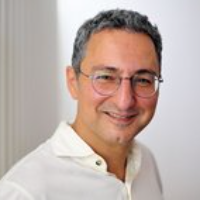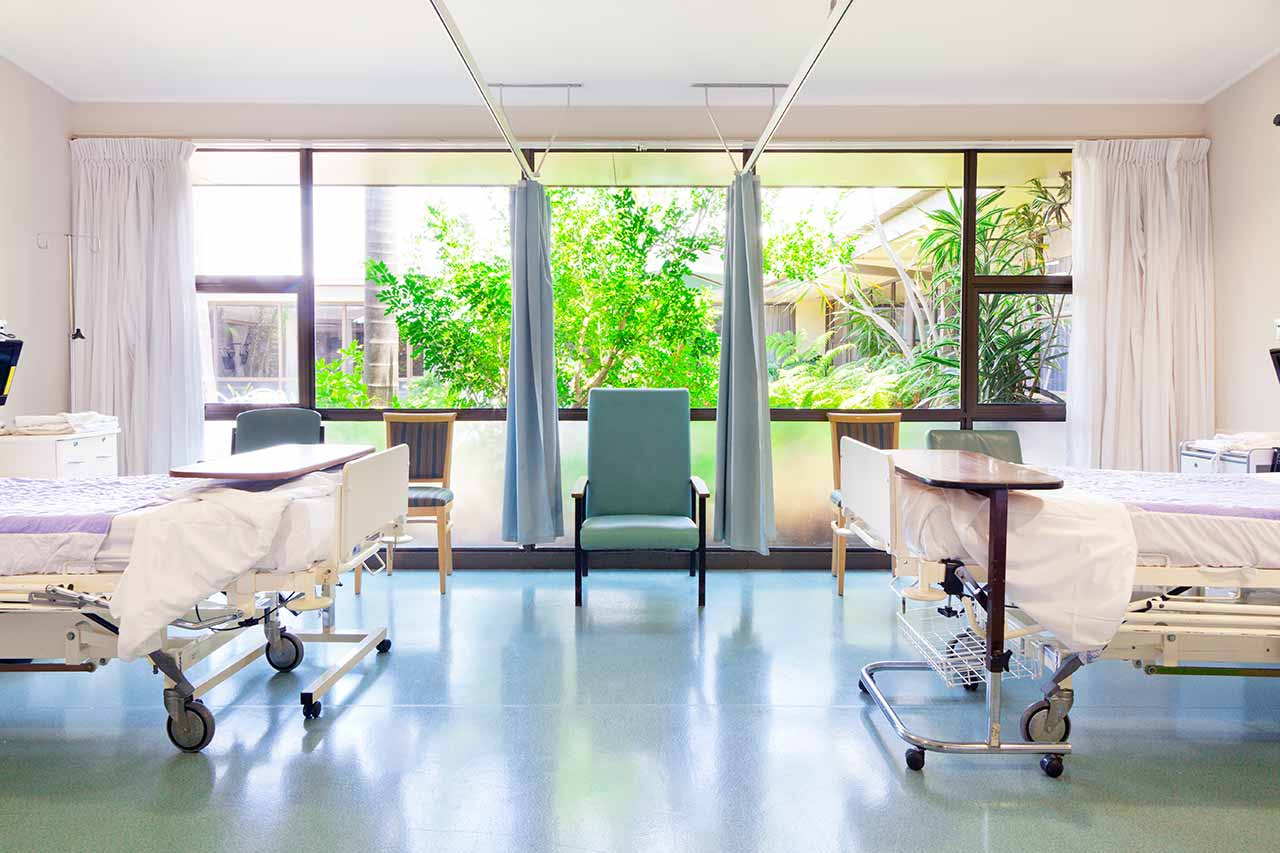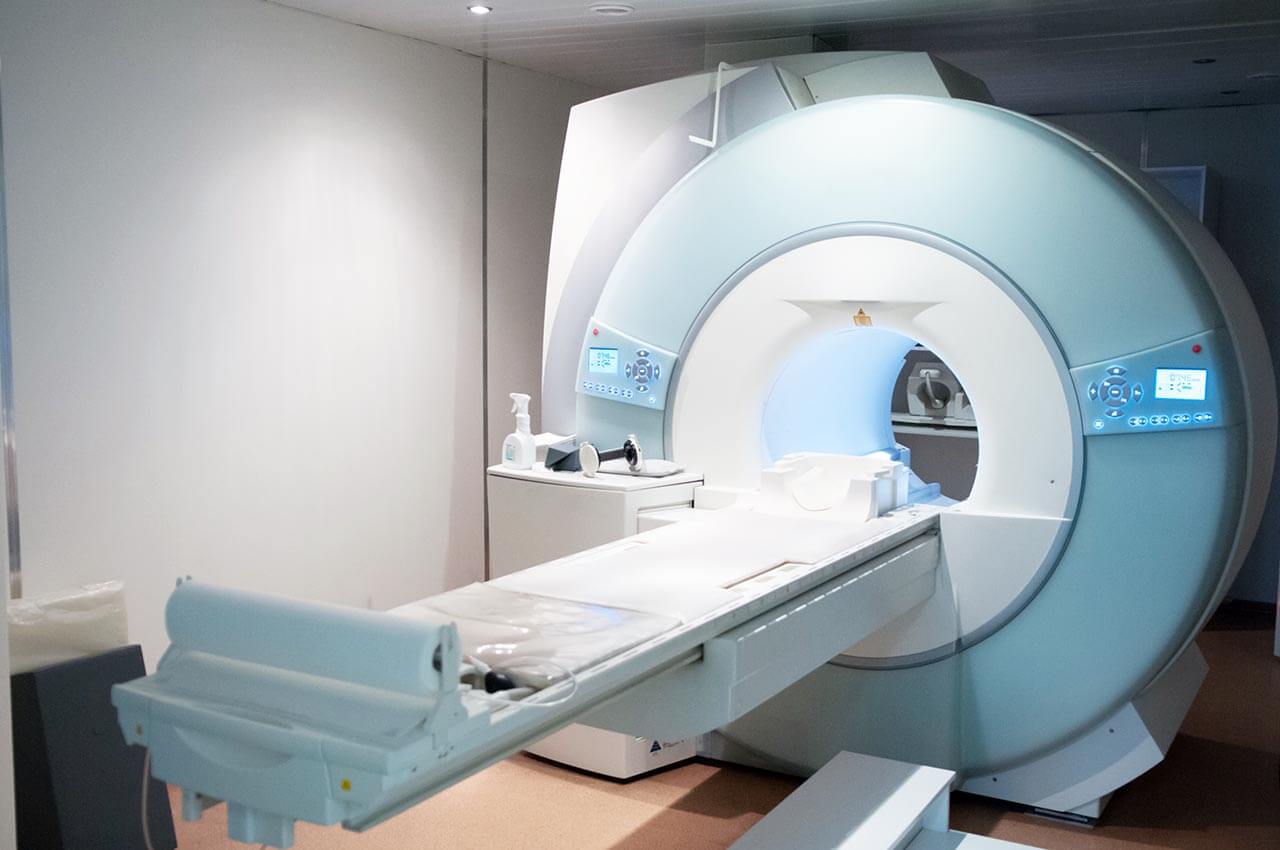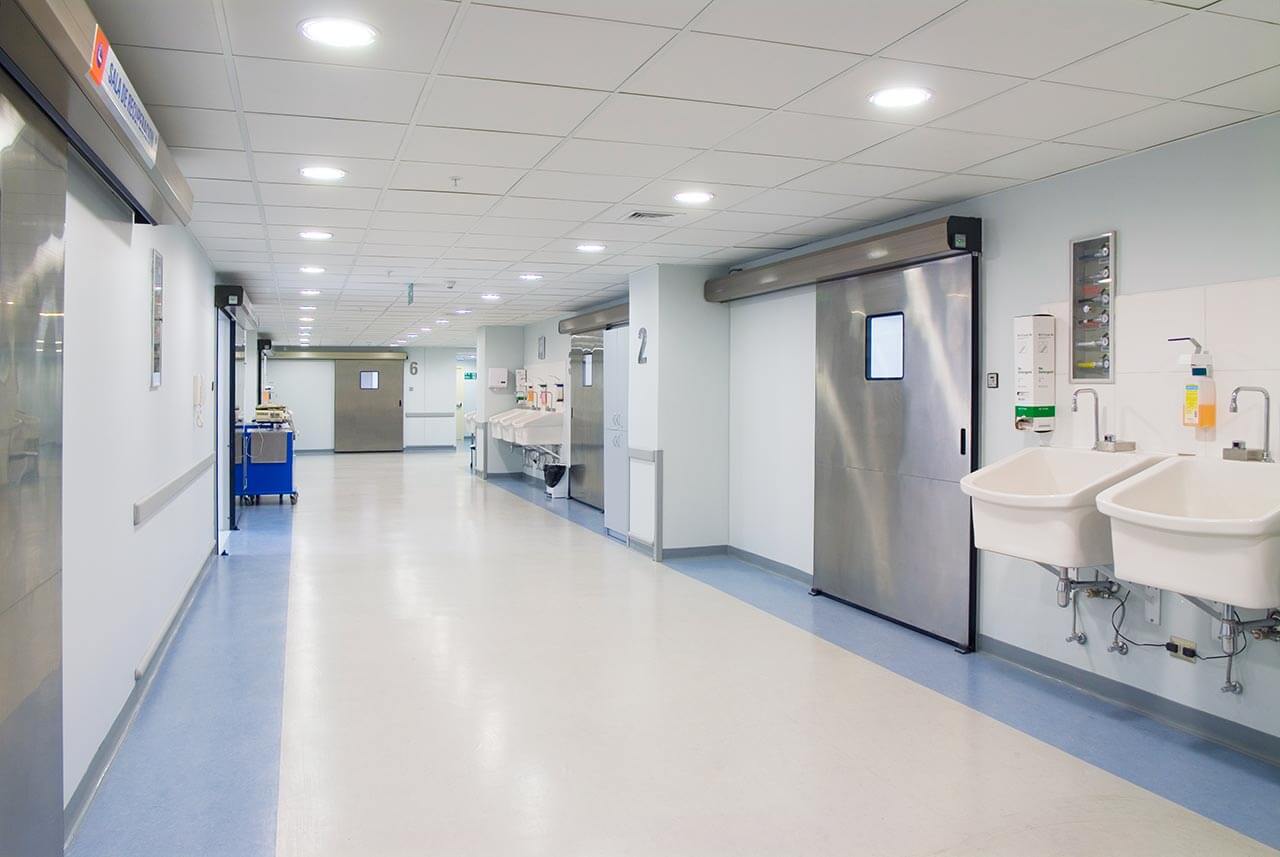
About the Department of Nuclear Medicine at University Hospital Saarland Homburg
The Department of Nuclear Medicine at the University Hospital Saarland Homburg offers patients the full range of modern methods of diagnostics and treatment using radioactive isotopes. The department actively carries out the very latest radioisotope tests, such as scintigraphy, PET/CT scans, and SPECT/CT scans. These procedures allow doctors to assess the metabolic processes in the body, due to which many pathologies are detected in their early stages, which significantly increases the chances of their successful cure. As for the treatment, of particular interest is the treatment of thyroid diseases and oncological pathologies. The department's doctors successfully carry out radioiodine therapy, radiosynoviorthesis, selective internal radiation therapy, peptide receptor radionuclide therapy, and other therapeutic procedures. Treatment with radiopharmaceuticals is highly effective and practically does not cause any side effects. The department is certified by the German Cancer Society to treat many types of cancer. The department is the largest medical facility of this kind in Southwest Germany and offers patients top-class medical services.
The department is headed by Prof. Dr. med. Samer Ezziddin. The doctor is an international expert in the treatment of neuroendocrine tumors and targeted radionuclide therapy. He also specializes in radioembolization, diagnostics of thyroid pathologies, and multimodal imaging using PET-CT and SPECT-CT scans. Prof. Samer Ezziddin is well-known in professional medical circles and regularly diagnoses and treats patients with complex clinical cases, demonstrating excellent results.
The department has advanced gamma cameras and PET scanners for radioisotope diagnostics: scintigraphy, classical PET/CT scans, 18F-FDG PET/CT scans, PSMA PET/CT scans, somatostatin receptor-targeting peptide PET/CT imaging, choline PET/CT scans, SPECT/CT scans, and others. Prior to any diagnostic procedure, a patient is given a small dose of a radioactive agent intravenously or is offered to take a capsule with a radiopharmaceutical orally. Sometimes the drug can be inhaled through a special mask. Depending on the specific examination, the pharmaceutical may take part in metabolic processes or accumulate in certain internal organs. A radioisotope drug injected into the body emits gamma rays, which are converted into images using a gamma camera or a PET scanner. The great advantage of radioisotope tests is the absence of radiation exposure to the body, since the radiation dose from a radioisotope agent is mostly minimal as only small amounts of radioactive substances are used, which quickly decay and are excreted from the body. Therefore, when using almost all methods of nuclear medicine, there are no side effects.
In addition to diagnostics, a variety of radioisotope treatments are available in the department. The department's doctors have unique skills in radioiodine therapy for benign and malignant thyroid diseases, radiosynoviorthesis for inflammatory processes in the joints, radioactive phosphorus therapy for bone metastases, radioimmunotherapy for B-cell lymphomas, selective internal radiation therapy for liver tumors and metastases, peptide receptor radionuclide therapy for neuroendocrine tumors, and Lu-177 and Ac-225 PSMA therapy for metastatic prostate cancer.
The department's team of doctors successfully treats thyroid diseases with radioiodine therapy. This type of treatment involves the administration of a small amount of radioactive iodine into the patient's body in the form of pills or capsules. Radioactive iodine is absorbed only by the cells of the thyroid gland, which excludes the effect of radiation on other internal organs. Radioiodine therapy can be used for both benign thyroid diseases (for example, for hyperthyroidism) and for differentiated forms of cancer of this organ. The main advantage of the treatment method is its high efficiency with minimal side effects. The benefits of therapy include the absence of pain during treatment. In addition, radioiodine therapy is an excellent alternative to thyroid surgery, which is associated with high risks of damage to the recurrent laryngeal nerve and parathyroid glands. Treatment takes place on an inpatient basis. As a rule, the duration of the patient's stay in the hospital does not exceed 5-7 days. The final results of radioiodine therapy can be assessed 2-3 months after its completion.
The specialists of the medical facility are also deservedly proud of their exceptional professional skills in the field of selective internal radiation therapy (SIRT). The technique is indicated for patients with malignant liver tumors and liver metastases who, for one reason or another, cannot undergo surgery. Selective internal radiation therapy is a type of internal radiation therapy. The principle of this type of treatment is the administration of a radioactive agent in the form of microspheres into the arterial vessels that supply the tumor. Radioactive microspheres penetrate into the tumor focus with blood flow and block its blood supply, due to which the tumor destruction occurs. SIRT uses intense short-range beta radiation (less than 1 cm), which allows doctors to deliver the maximum dose of radiation directly to the tumor without damaging the adjacent organs. The decision on the advisability of selective internal radiation therapy is made cooperatively by a treating oncologist, a specialist in nuclear medicine, and a radiologist. Upon the completion of treatment, patients are recommended to undergo follow-up examinations, including laboratory diagnostics and CT or MRI scans.
The department provides patients with targeted radionuclide Lu-177 PSMA therapy, which is an advanced treatment method for prostate cancer. This treatment is commonly used to treat metastatic castration-resistant prostate cancer that cannot be treated with other methods available in oncology, including surgery, chemotherapy, and radiation therapy. A patient first undergoes a Ga-68 PSMA PET/CT scan to assess the advisability of using this type of treatment, with the help of which the department's doctors can determine the presence of increased expression of prostate-specific membrane antigen (PSMA). The essence of the therapy is the intravenous administration of the Lutetium-177 radiopharmaceutical, which binds to PSMA on the surface of tumor cells and thus irradiates the neoplasm, leading to its destruction. Lu-177 PSMA therapy has high efficiency rates and practically no side effects.
The department's range of diagnostic and therapeutic services includes the following:
- Diagnostics
- Fluorodeoxyglucose PET/CT scans
- PSMA PET/CT scans
- PET/CT scans to detect amyloid protein (for example, in Alzheimer's disease)
- FET PET-CT scans for brain tumors
- PET/CT scans for detecting somatostatin receptors
- F-DOPA PET/CT scans
- Sodium fluoride PET/CT scans
- Choline PET/CT scans
- Treatment
- Radioiodine therapy
- Radiosynoviorthesis (RSO)
- Radioactive phosphorus therapy for bone metastases
- Selective internal radiation therapy
- Radioimmunotherapy
- Peptide receptor radionuclide therapy
- Lu-177 PSMA therapy for metastatic prostate cancer
- Ac-225 PSMA therapy for metastatic and recurrent prostate cancer
- Other diagnostic and therapeutic options
Curriculum vitae
Higher Education and Professional Career
- Human Medicine studies at the Goethe University Frankfurt.
- 1997 German and American State Examinations.
- 1998 Internship in Endocrinology and Hepatology at the University Hospital Cologne.
- Board certification in Nuclear Medicine, Department of Nuclear Medicine at the University Hospital Bonn.
- 2006 Senior Physician, Department of Nuclear Medicine at the University Hospital Bonn.
- 2008 Managing Physician and Deputy Head of the Department of Nuclear Medicine at the University Hospital Bonn.
- Completion of the part-time Master's program "Clinical medical technology" at the Rheinische Friedrich-Wilhelms University in Bonn.
- 2014 Invitation to the position of Head of the Department of Nuclear Medicine at the University Hospital Saarland Homburg.
- Professorship in Nuclear Medicine at the Saarland University.
Photo of the doctor: (c) Universitätsklinikum des Saarlandes





